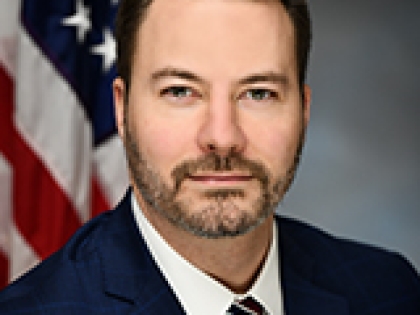
Ortt Leads Mental Health, Disability Hearing
Antoinette DelBel
February 3, 2016
ALBANY – State Senator Rob Ortt (R,C,I – North Tonawanda), chairman of the Senate’s Mental Health and Developmental and Disabilities Committee, today led a Joint Legislative Budget Hearing focusing on the programmatic and financial impact of the Governor’s proposed budget. Senator Ortt asked state agencies overseeing mental health, developmental disability services, and substance abuse about the impact this year’s budget will have on services across the state.
Ortt joined members of the Senate and Assembly as well as service providers in expressing serious reservations over the Governor’s push to increase the minimum wage from $9.00 to $15.00 per hour. The Executive Budget includes only a 0.2 percent ($2.4 million) statutory Cost of Living Adjustment increase while a minimum wage increase will result in $270 million additional costs for just one year. Downstate workers make, on average, $10.78 per hour while Upstate workers average $9.75.
“It’s the height of hypocrisy and poor leadership to see a Governor propose a 67 percent minimum wage increase for the entire state while allocating no funding for the workers providing critical services to our most vulnerable population,” said Senator Ortt. “If the state is unwilling or unable to fund this increase, how can we expect small businesses, family farms, and non profits to do so? And if the Governor goes through with this proposal, what is our plan when disability service providers inevitably become insolvent – who will take care of the 130,000 individuals in this state with developmental or intellectual disabilities?”
The hearing included testimony from executive agencies, representatives and community advocates.
First to testify was Office of Mental Health (OMH) Commissioner Ann Marie T. Sullivan. Senator Ortt outlined priorities in the field of mental health, such as the need for additional housing options in Western New York as well as services for children. He opened the questioning by seeking further details on plans to close the WNY Children’s Psychiatric Center in West Seneca and transfer the patients to Buffalo Psychiatric Center.
“I’ve heard from more than 6,000 former patients, family members, and workers across Western New York who have grave concerns over the proposed merger of Western New York Children’s Psychiatric with Buffalo’s adult psychiatric facility,” said Senator Ortt. “Until we hear a clinical explanation for why this move is necessary and see investments made in community programs for children battling mental health issues, we should not move forward with this.”
The hearing also included testimony from New York State Office for People with Developmental Disabilities (OPWDD) Acting Commissioner Kerry Delaney. Senator Ortt thanked her for working with him over the past year on the state’s Transformation Panel to address significant issues, such as transportation, housing, employment, and services. He noted the true challenge will be in implementing the recommendations to improve the lives of individuals with disabilities, their families, and their providers.
“I still hear from families every day concerned about where our state is headed with these critical services,” said Senator Ortt. “Aging parents don’t know where their disabled children will live when they’re no longer able to care for them. Hard-working individuals with disabilities worry about whether they’ll keep their jobs as the state moves to phase out sheltered workshops. And families and service providers are nearly unanimous in their frustrations with the state’s lack of answers, inadequate transparency, and burdensome regulations.”
Ortt also touched upon an additional $15 million in START funding across the state, $120 million for new OPWDD services, and transition to managed care.
Another key speaker was Arlene Gonzalez-Sanchez, Commissioner of Office of Substance Alcoholism and Substance Abuse Services. Commissioner Gonzalez-Sanchez discussed the state’s growing heroine epidemic and subsequent questions focused on that topic. Senator Ortt, a co-chair of the Senate Task Force on Heroin and Opioid Addiction, discussed the need for an all-encompassing approach.
“The dangers of heroin and opioid abuse have spread to communities across our entire state, which is why it's critical for us to listen and respond,” said Senator Ortt. “We need to engage individuals across the entire spectrum of this epidemic - law enforcement officials, addicts, family members, and experts in the treatment, insurance, and medical communities. This will allow us to continue our efforts to boost prevention and recovery while cracking down on drug dealers.”
In the coming weeks, Senator Ortt said the Senate will present and pass its own budget. The State Senate and State Assembly will also hold joint committee meetings as they, along with the Governor, negotiate the final elements of the State Budget. The budget is due March 31.
Share this Article or Press Release
Newsroom
Go to Newsroom

